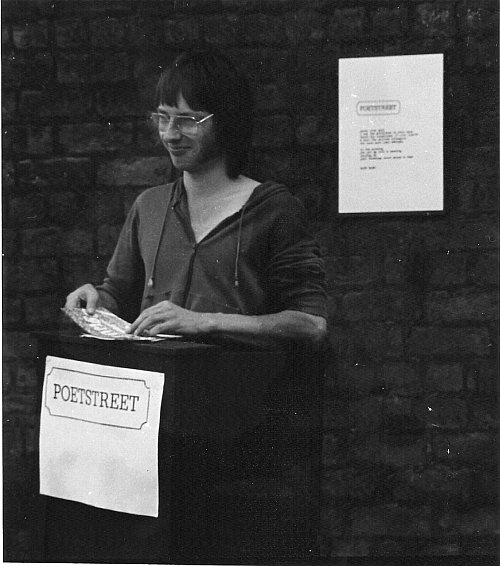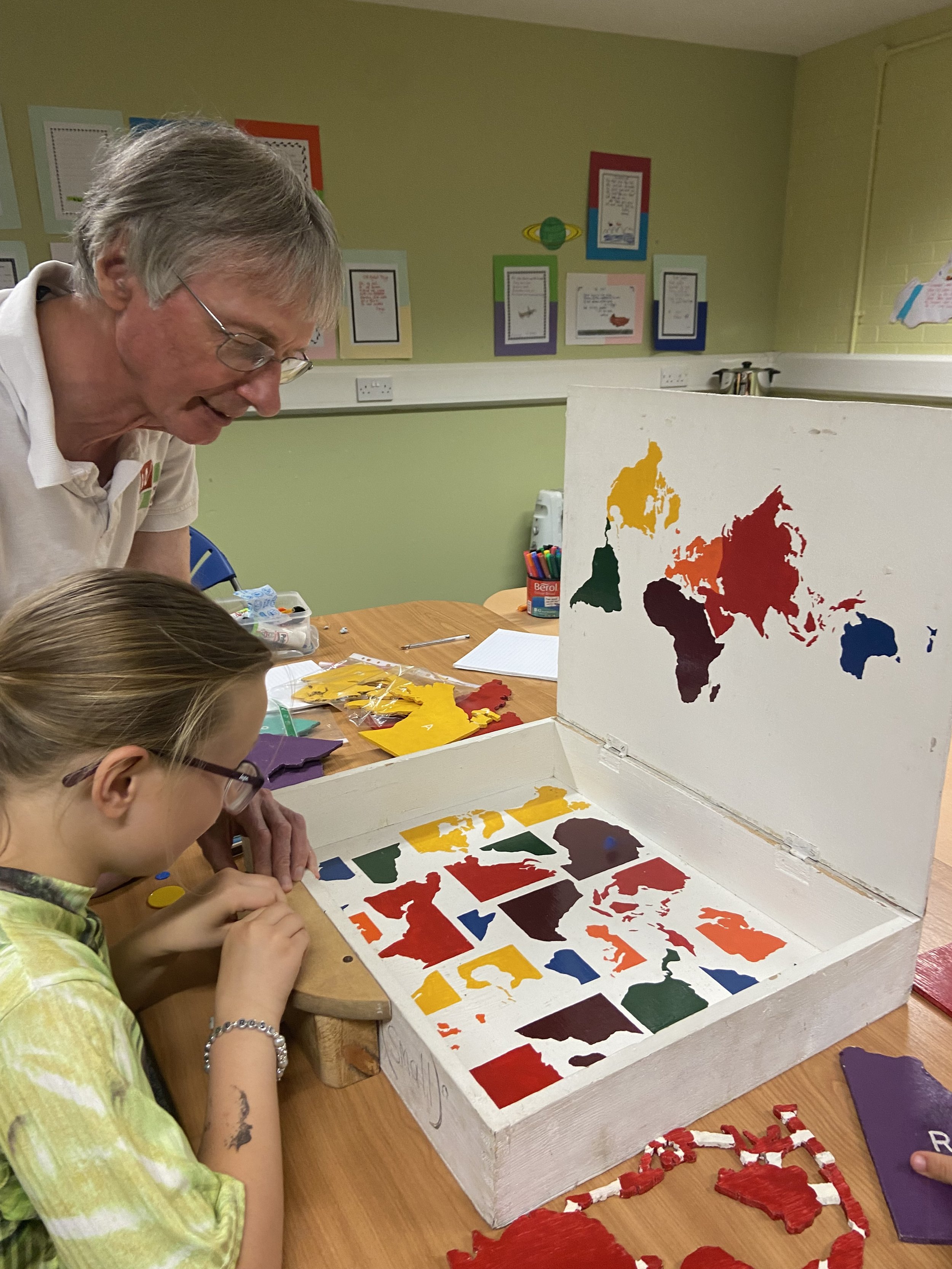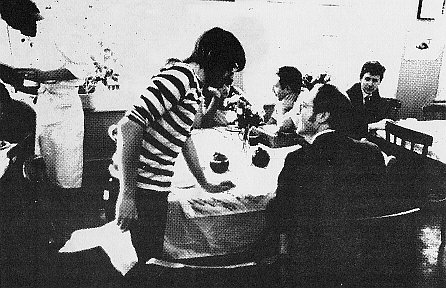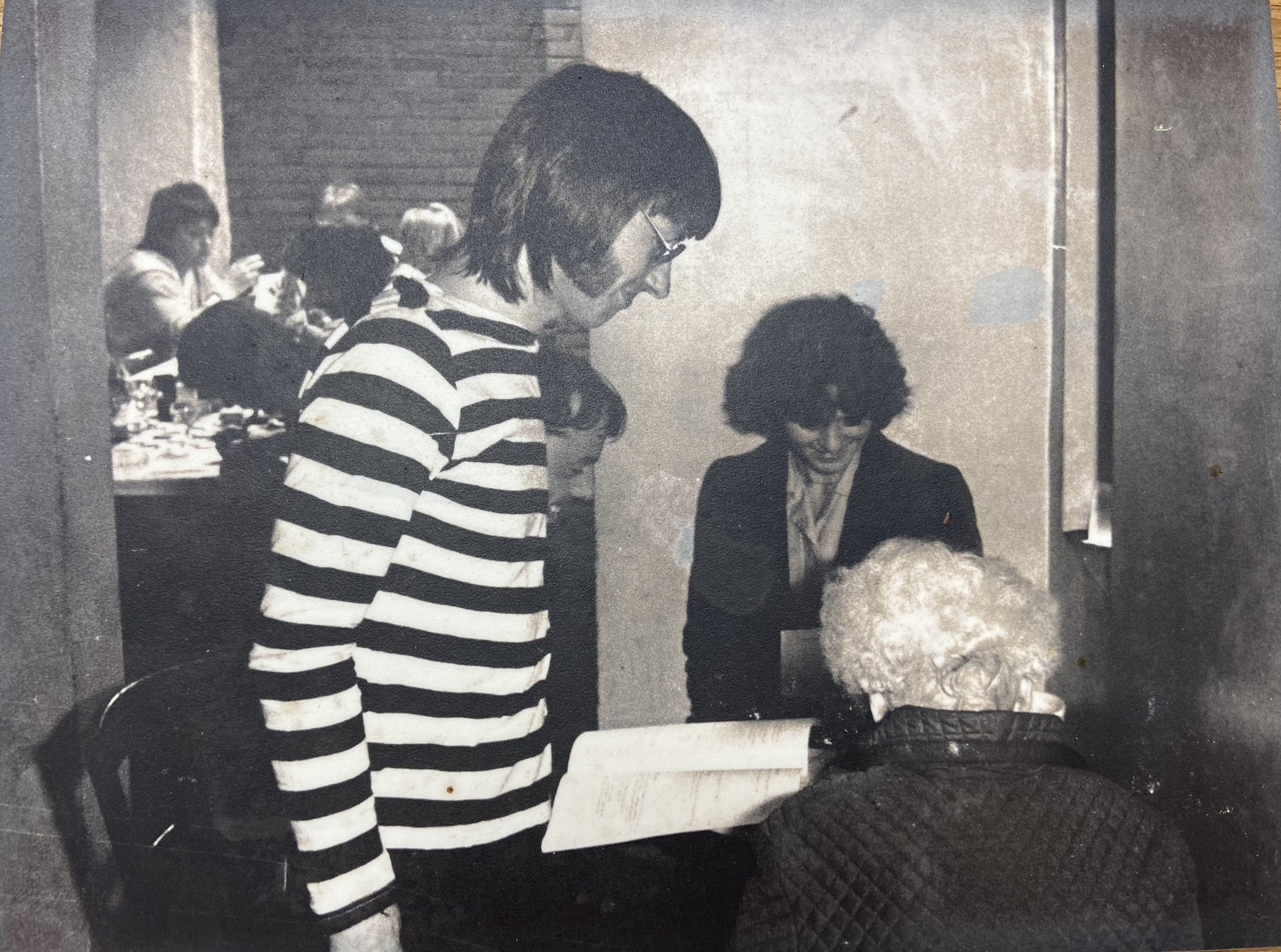We sat down with co-founder Dave Ward and asked him about his creative process, how he deals with writer’s block and his tips for young writers!
So firstly can we have a brief introduction, your name, what you write and erm what you do?
Dave Ward: I publish poetry as David Ward, I publish folkloric stories as David Greygoose.
When did you start writing and what made you interested in writing?
DW: I started writing almost as soon as I could hold a pen. When I was at school, primary school, I think it was Wednesday afternoons, you could bring in anything you wanted from home and I used to bring my own comics and picture books that I made and I would bring them in and pass them around the class. That was probably my first audience.
Do you write prose as well as poetry and do you prefer writing by hand or typing?
DW: I always write by hand. I have never done a piece of creative writing on the computer, I don’t think my brain is wired up that way. But every artist uses what is to hand, so I’m sure if I was born more recently, I would do things like computers. I always like to tell people that when I started at infant school, we wrote in chalk on slates. Forty children in the class. [laughs] It’s true.
How did you begin to first circulate and publish your writing?
DW: I started to publish poetry in small poetry magazines, around 1965-1966 and then I joined a poetry group in Northampton that met up in someone’s house. Then we went on and I ran the poetry nights in a pub in Northampton when I was seventeen. So obviously of drinking age.
Do you have a fanciful or pipeline piece of work that you have been wanting to write?
DW: Well, I’m just finishing a novel or novella that was always something that I thought I should have a go at. I don’t have big future projects but I have actually got so many ideas on scraps of paper in files that it’s just hoping that there is enough years to do them all really.
Can I ask what genre it is?
DW: Well, it’s fiction because it’s a short novel.
How do you deal with writer’s block?
DW: I went to a talk by Neil Gaiman, and I thought his answer was wonderful. His answer was “You’re a writer, do some writing!” I’ve never had writer’s block, I have too many ideas going on in my head. It’s more trying to get them all down. And I think what Neil Gaiman was saying if, well particularly when I have been writing the stories (Brunt Boggart series), it was almost like doing knitting, like you can do a few lines and then put it down and pick it up the next day and do a bit more. And doing the stories was a bit like that because almost all of them were written on the train between Hunt’s Cross station and Liverpool Central station. So you had eighteen minutes and that concentrates the mind wonderfully. And with a story, you have got an outline so there is always the next bit you can do. And as Neil Gaiman said, do some writing and if it’s not the best bit of writing, go back and fix it. Don’t sit there thinking “I can’t write anything.”
How does writing express your thoughts more so than other outlets?
DW: I used to want to be a visual artist. And I found that very expressive. I have always loved music, but I think I probably realised my limitations as a visual artist. Musically (my father was a music teacher), I could play the viola but not as well as he could play stuff, but I think with writing I’m still learning and still developing. And it seems to be the art form that suits me. But some people, like some sports people that play football, you can put them in any position on the pitch and there are also some people who can play left back. And that’s it. And with writers and artists of any sort, some writers only write poems, some writers only write novels, and some people write poems and novels and short stories. Some people like Paul McCartney, he writes pop songs, he writes classical music, he has a painting exhibition and he has published a book of poetry. Some people just don’t know any bounds.
Fingers in many pies.
DW: That’s it! Some people make pies.
What would you hope that your work provides for other people?
DW: A combination of thought and entertainment. I like it when a piece of art works on many levels. So again, referencing the Beatles, they wrote simple pop songs but apparently the more you listen to them the more levels and layers you realise were there. Particularly with stories they are strange and mythic, but they have things behind them and they almost induce a dream-like state.
What would you say to your younger self as a writer?
DW: Keep doing it. I mean the joke I keep saying about me is that I’m doing the same thing now that I was doing at fifteen or seven. Just keep doing it and you learn more. Read and listen to other people.
What is a piece of advice that someone gave you and you would pass on?
DW: Probably that Neil Gaiman about writer’s block. He probably got that from someone else as well. Always carry a pen and pencil around with you and I expect other people will say carry your phone around with you and make notes on that. Everything for a writer is research. Even horrible experiences are research for writing.







